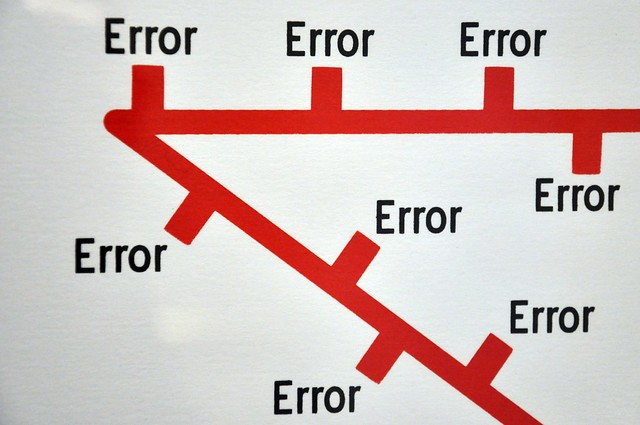Hello! Instead of a normal "Mistake Monday" post today, I wanted to continue
the song activity from last Friday. If you remember, we looked at
Bryan Adams' song "Summer of '69" and tried to find as many verbs as possible. Today we'll put the verbs into two categories:
regular verbs and
irregular verbs. But first, what
are regular and
irregular verbs?
To understand the difference between a regular and an irregular verb in English, you need to compare the verb's present tense with its past tense:
Regular Verbs
To form the past tense of a regular verb, you simply add "
-ed" to the end of the verb (or in some instances "-ied" or just "-d"). For example, the verb
cook in the present becomes
cooked in the past. Similarly,
watch becomes
watched,
play --> played, change --> changed and
try -->
tried. Regular verbs are generally easy for most students to learn.
Here is a BIG list of regular verbs, along with their Spanish equivalents.
Irregular Verbs
Irregular verbs change from the present to the past form. Normally it's a small change in spelling, but it can also be a change in pronunciation or even a word that looks very different. For example, the past of sit is sat. When changing to the past tense, the verb write becomes wrote, eat --> ate, see --> saw, and drink --> drank. Some words change drastically (I am --> I was, but You are --> You were; and I go changes to I went), but others don't change at all (cut is the same in the past and the present).
 |
| If you started to think that English past tense verbs were difficult, just look at this chart for a reminder that it's not that bad! And it doesn't even include the pretérito imperfecto forms, like corría, corrías, corría, corríamos, etc... (Image) |
So, when you see a verb in English, how do you know if it is regular or irregular? Unfortunately, the answer is basically this: You don't know. That is, you need to basically practice and memorize the regular verbs, and when you recognize that a verb is irregular, you also need to memorize the past form of that verb. That sounds difficult, but don't worry; with some practice, you'll be OK!
Well, let's practice now!
 |
| Yes, that's Bryan Adams. Yes, I'm sorry. (Image) |
Look at the
Bryan Adams song again (you can go back to the post
here, or follow the lyrics below). In the lyrics below, I'll put the verbs in
bold print so you can see them more easily. Are the verbs in the present or past tense? Then, decide if each verb is
regular or
irregular and put them into two categories (you can use the links above for help). If the verbs are
irregular, determine what the present and past form of each verb is.
For example, the first two verbs are got (the past of get) and bought (the past of buy); both of these verbs are definitely irregular. But the third verb, played (the past of play) is regular. So, do that with all the verbs. We'll check your answers on Wednesday.
(Note: there are a few grammatical constructions that are a bit difficult for this lesson, like "should have known," so for today, don't worry about them. Just focus on the past and present verbs.)
SUMMER OF '69 - BRYAN ADAMS
I got my first real six-string
Bought it at the five-and-dime
Played it 'til my fingers bled
It was the summer of ‘69
Me and some guys from school
Had a band and we tried real hard
Jimmy quit and Joey got married
Should have known we'd never get far
Oh when I look back now
That summer seemed to last forever
And if I had the choice
Yeah - I'd always want to be there
Those were the best days of my life
Ain't no use in complainin'
When you’ve got a job to do
Spent my evenings down at the drive-in
And that's when I met you yeah
Standin' on your Mama's porch
You told me that you'd wait forever
Oh and when you held my hand
I knew that it was now or never
Those were the best days of my life
Back in the summer of ‘69
Man we were killin' time
We were young and restless
We needed to unwind
I guess nothin' can last forever - forever
And now the times are changin'
Look at everything that's come and gone
Sometimes when I play that old six-string
I think about you, wonder what went wrong
(repeat chorus)
WOW! Lots of verbs! Remember, a few of them are difficult, and a few of them (like "were killin") aren't actually in the simple present or simple past form. Again, don't worry too much, just try to determine if the verbs are regular or irregular.
We'll check your answers on Wednesday. Until then, thanks for reading, and have a nice week!
.jpg)
























